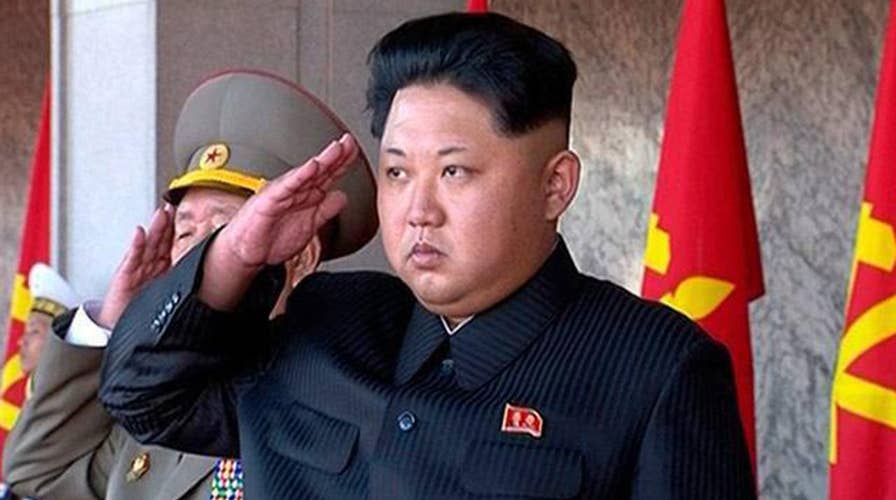Report: North Korea targeted US power companies
National security expert Rebeccah Heinrichs provides insight.
Experts studying Friday's earthquake in North Korea say the rogue nation may have unintentionally destabilized its nuclear test site due to the toll of repeated atomic trials.
South Korea’s weather agency detected a 2.7 magnitude earthquake near the Punggye-ri test site, Reuters reported.
“I think the Punggye-ri region is now pretty saturated. If it goes ahead with another test in this area, it could risk radioactive pollution,” Kim So-gu, the head researcher at the Korea Seismological Institute, told Reuters.
Friday's quake marked the country’s fourth since an underground nuclear test in the Punggye-ri region on Sept. 3, which caused a 6.3 magnitude tremor. North Korea has claimed the test, its sixth and most powerful yet, was a hydrogen bomb. U.S. intelligence reportedly determined the blast was 10 times greater than that of the nuclear bomb dropped over Hiroshima at the end of World War II.
The quake Friday wasn’t man-made, experts said, likely meaning the latest nuke test seriously damaged the Punggye-ri region, located in the northeastern part of the country.
Experts from South Korea’s Meteorological Administration told CBS News the Sept. 3 test possibly weakened the tectonic plate structures in the area, most likely causing the subsequent quakes. The Punggye-ri region is a mountainous one where earthquakes don’t naturally occur.
Satellite images show numerous landslides have occurred near the nuclear test site, 38 North, a Washington-based organization that monitors North Korea, told Reuters. There is also a chance the nuclear tests could trigger a volcanic eruption at Mt. Paektu, which is a mountain about 60 miles away from the Punggye-ri region, CBS reported.

